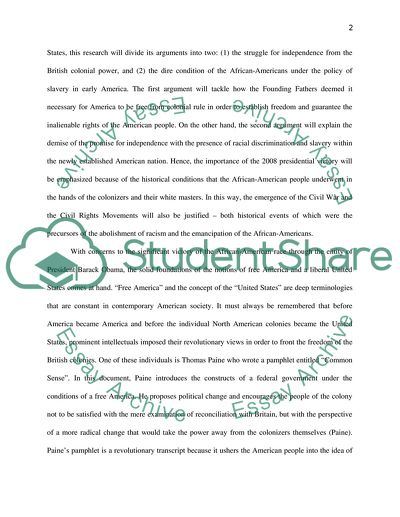Cite this document
(“The Obama Victory: A Symbol of American Freedom and African-American Essay”, n.d.)
Retrieved from https://studentshare.org/history/1439306-the-obama-victory-a-symbol-of-american-freedom-and-african-american-struggle
Retrieved from https://studentshare.org/history/1439306-the-obama-victory-a-symbol-of-american-freedom-and-african-american-struggle
(The Obama Victory: A Symbol of American Freedom and African-American Essay)
https://studentshare.org/history/1439306-the-obama-victory-a-symbol-of-american-freedom-and-african-american-struggle.
https://studentshare.org/history/1439306-the-obama-victory-a-symbol-of-american-freedom-and-african-american-struggle.
“The Obama Victory: A Symbol of American Freedom and African-American Essay”, n.d. https://studentshare.org/history/1439306-the-obama-victory-a-symbol-of-american-freedom-and-african-american-struggle.


